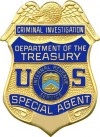An attorney in Bucks County, Pennsylvania has been indicted on charges that he stole almost $2 million from a deceased client’s estate. Prosecutors charged attorney Randolph Scott, 70, with mail fraud, aggravated identity theft, tax evasion and failure to file tax returns. If convicted on all the charges, he faces a minimum of 2 years in prison and possibly up to 31 years.
Scott is accused of embezzling money from the estate of a deceased client, John Bready. Prosecutors say Scott diverted $1,758,193 from Bready’s estate and deposited the funds into his own account. In addition, they say he committed tax evasion by failing to file tax returns for the estate.
In an unusual twist, prosecutors say that Scott engaged in tax evasion as part of an elaborate cover up that included not filing and paying required estate tax returns. Unfortunately, that means the estate is liable for an estimated $520,000 tax bill plus interest and penalties.
If the allegations are true, instead of safeguarding the estate of his deceased client, Scott simply took the money.
According to the indictment, the late John Bready had intended his heirs receive $50,000 for the rest of their lives. Now the money is gone and instead they are stuck with a huge tax bill. (The government seeks restitution in the indictment but it remains to be seen if Scott still has the money.)
Some folks believe that tax evasion is a victimless crime. Obviously no one enjoys paying taxes but when one person commits tax evasion, everyone else is stuck paying more. As demonstrated by this case, when an accountant or lawyer steals tax monies from a client, the client suffers twice. Once from the loss of his or her money and a second time because interest and penalties keep accruing on the tax debt until paid. Just because the estate’s tax returns were not filed doesn’t mean that Bready’s heirs are off the hook.
[Ed. Note: The indictment against Scott is just an accusation. He is presumed innocent until proven guilty.]
Estate fraud is usually committed by disgruntled heirs who feel they were entitled to more. Sometimes, the very people hired to protect the estate are the ones committing the fraud. If you feel that you or a loved one are the victim of an estate fraud, forged will, inheritance scam or other type of fraud, don’t delay. Contact an experienced fraud lawyer immediately. The earlier a fraud is detected, the better the chances of recovery.
The estate fraud lawyers at Mahany & Ertl can help get back your hard earned money. Most will contests and probate fraud matters can be handled on a contingent fee basis meaning no legal fees unless we recover money for you.
For more information, contact attorney Brian Mahany at or by telephone at . All inquiries are protected by the attorney client privilege.


